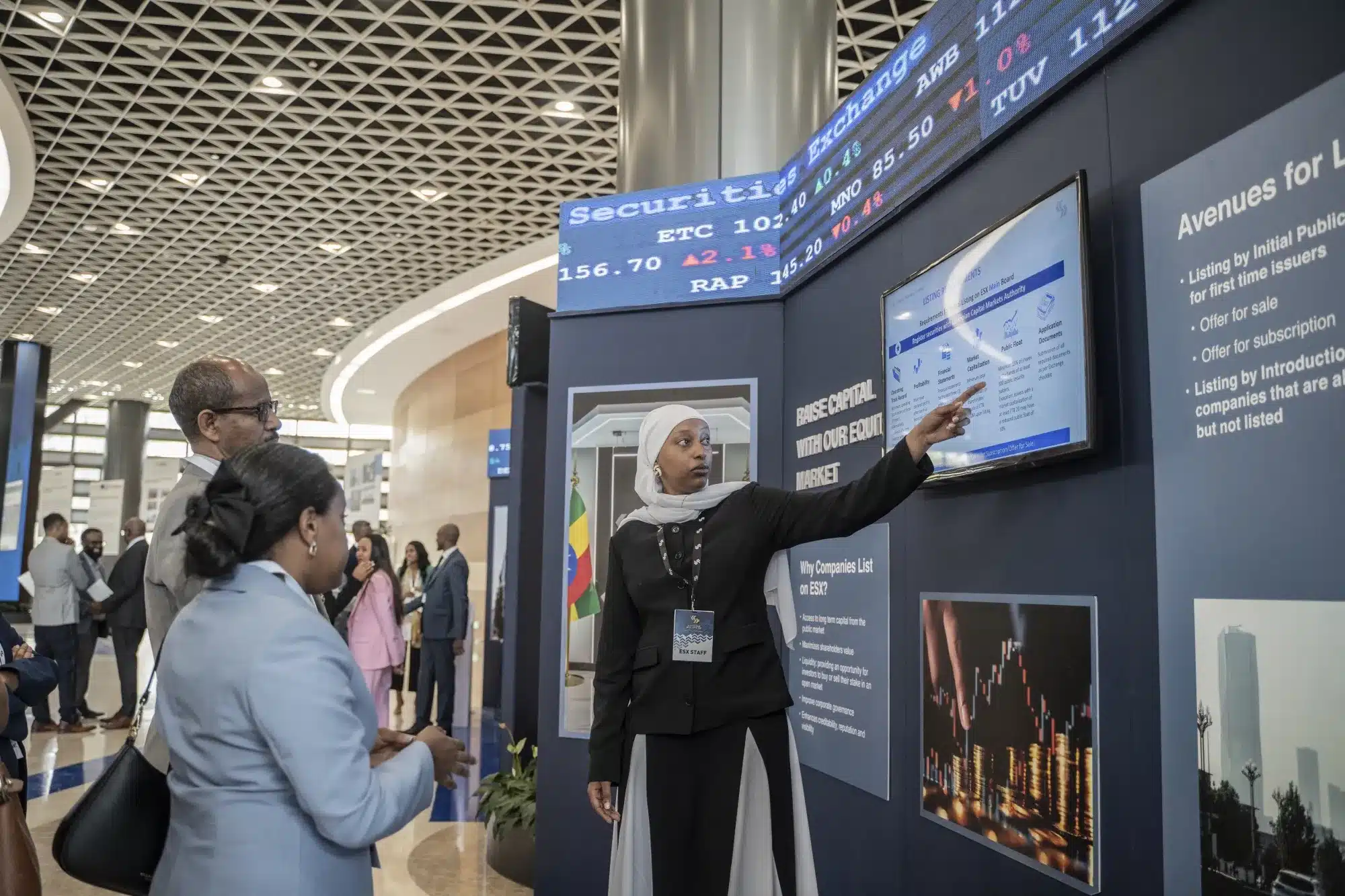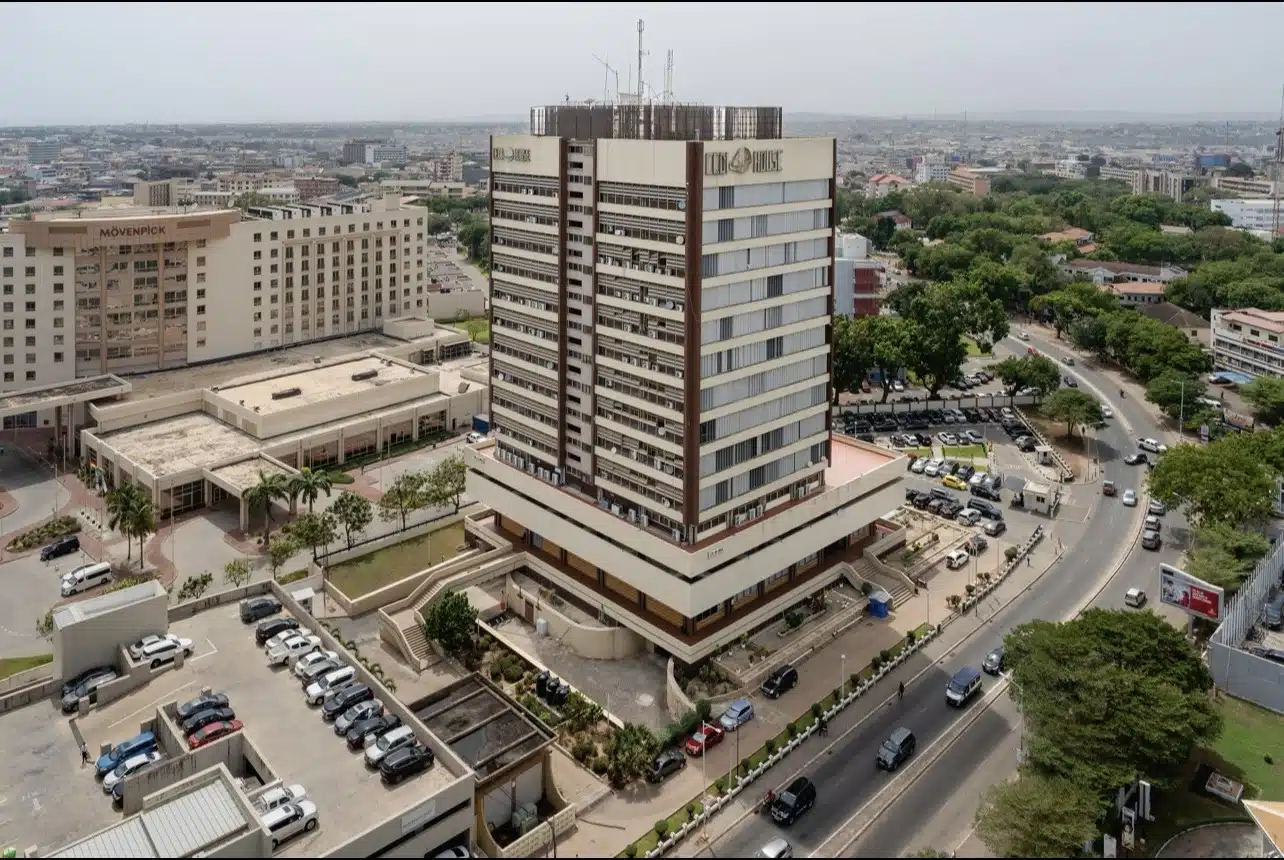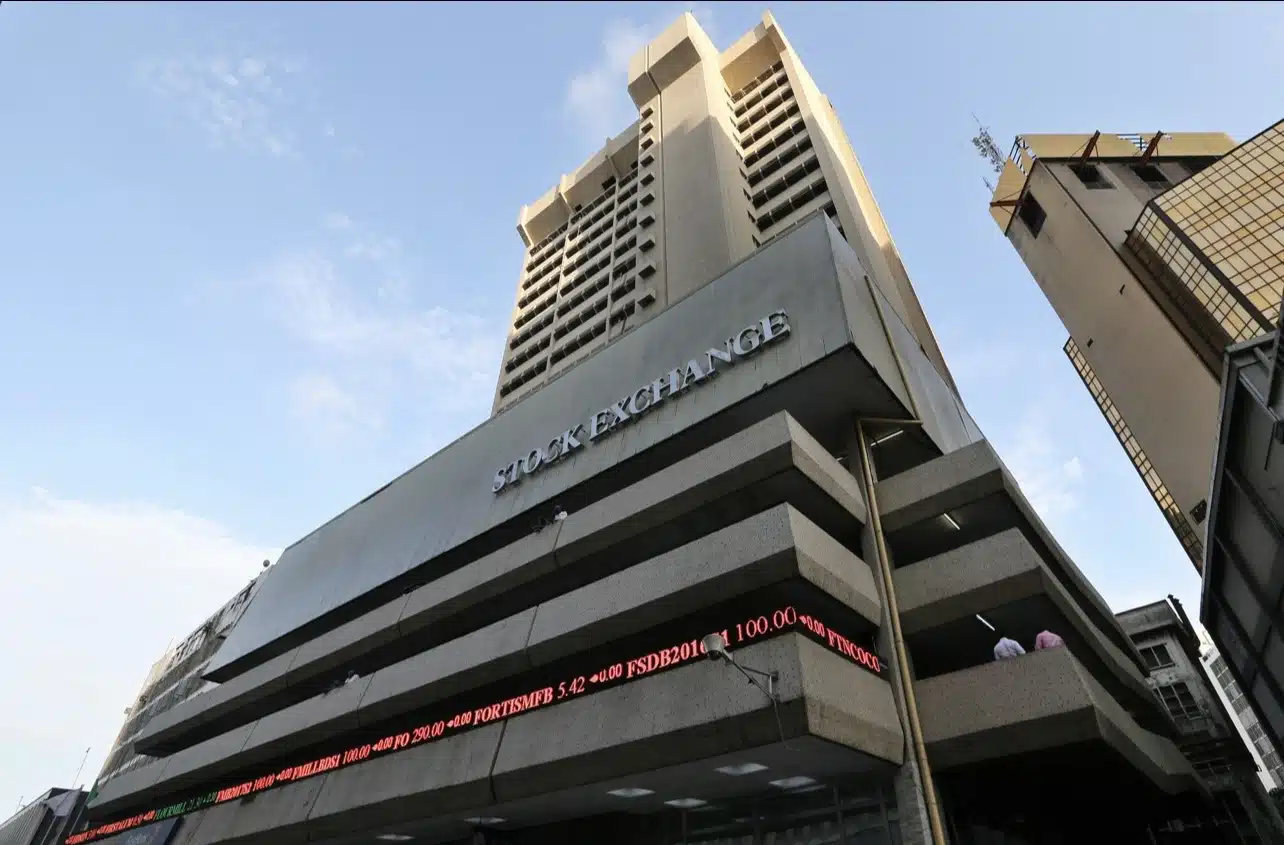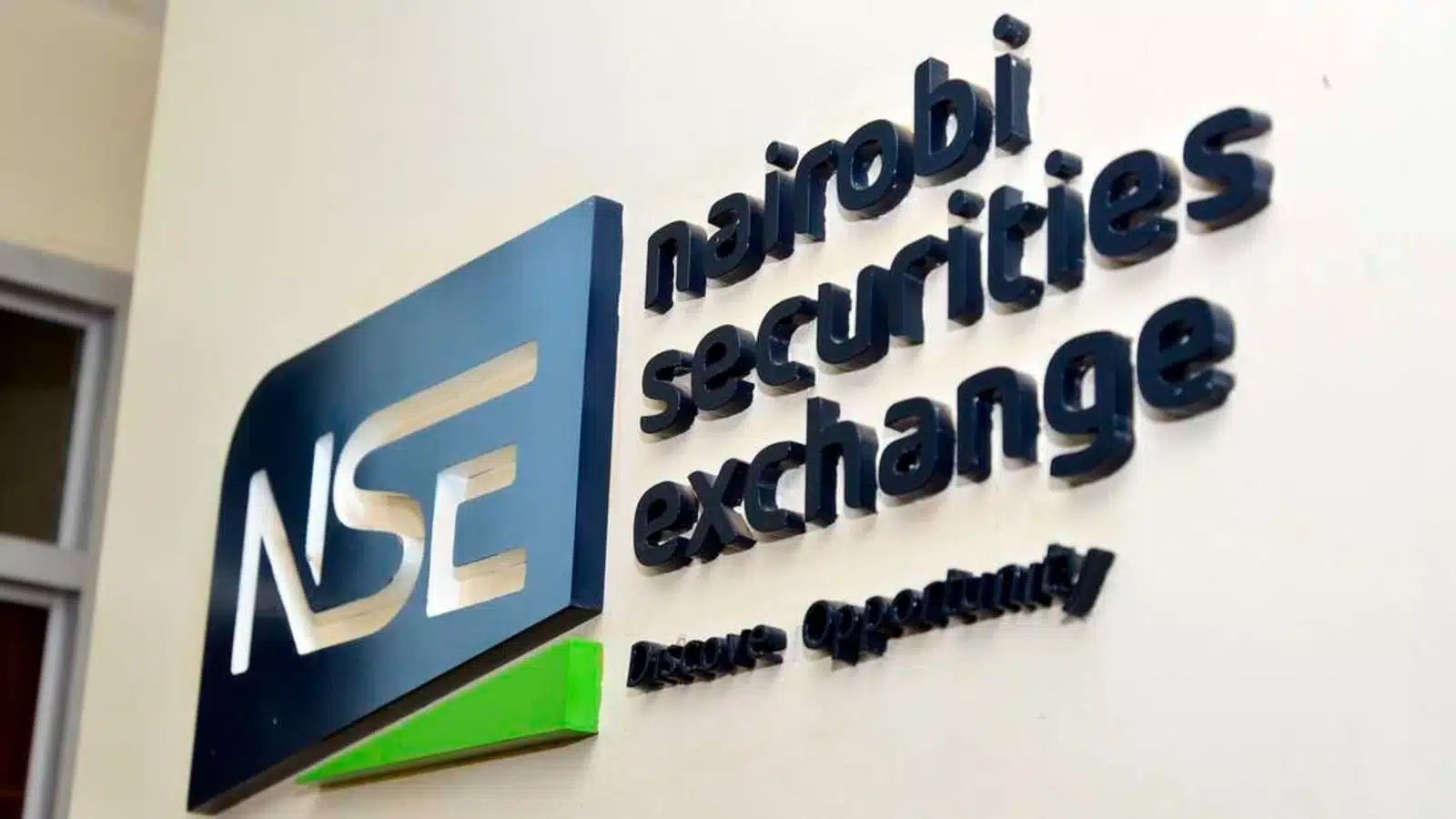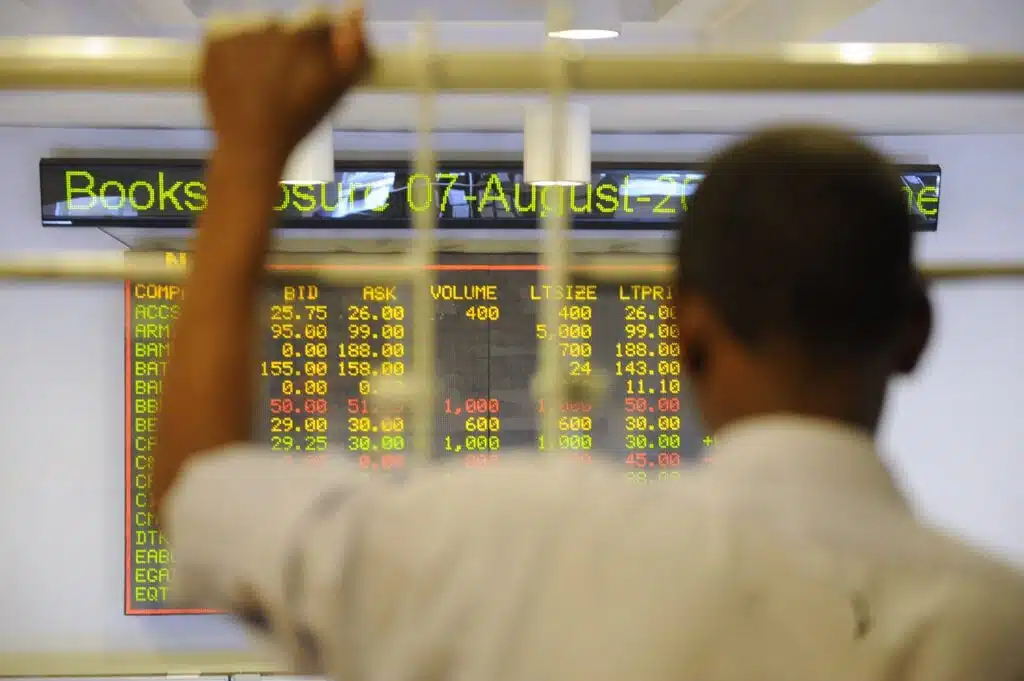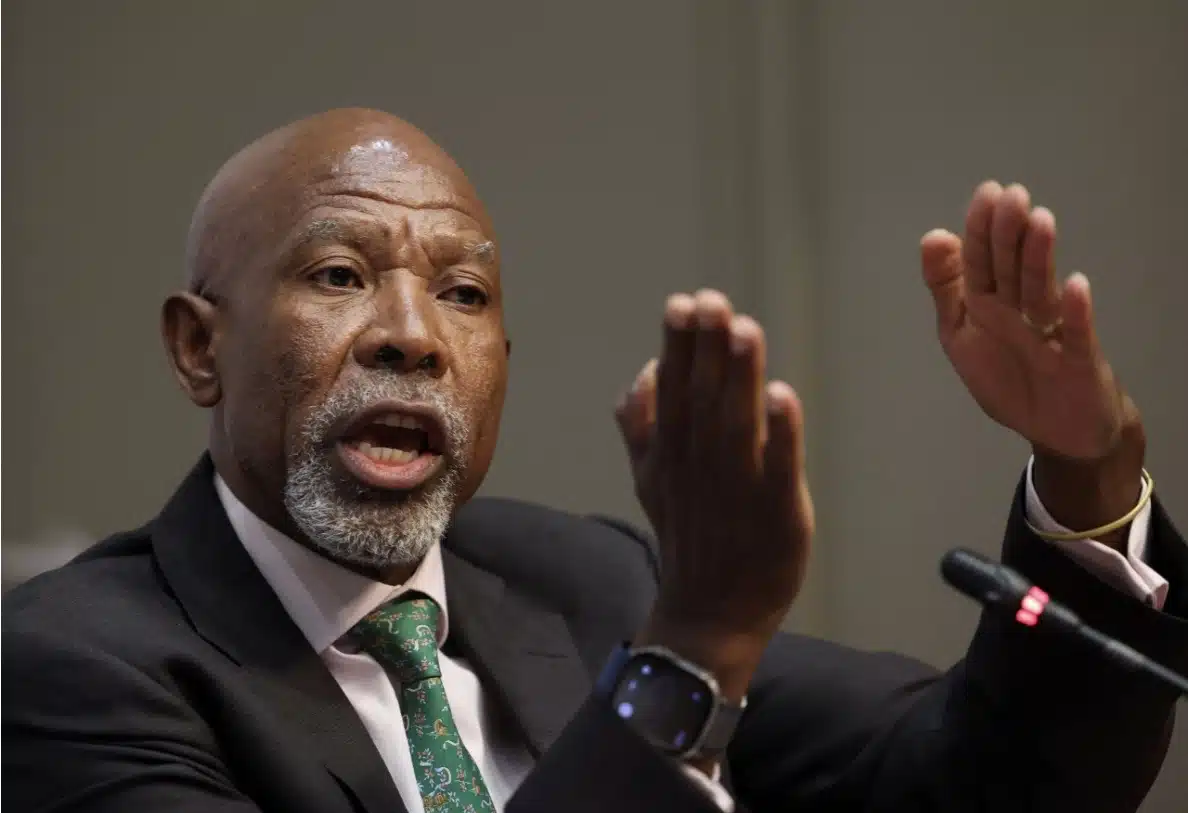Ethiopia’s long-awaited stock market, the Ethiopian Securities Exchange (ESX), has begun to take shape after decades without a modern capital market.
Officially launched on January 10, 2025, through a public—private partnership, the exchange is central to the country’s financial liberalisation drive and is expected to reshape how companies raise funds in Africa’s second most populous nation.
Before Ethiopia’s launch, the Angola Debt and Stock Exchange—founded in 2017—was Africa’s youngest bourse.
So far, only three companies have been listed. According to the ESX, Wegagen Bank marked its debut on launch day, followed in June by Gadaa Bank, one of the country’s youngest lenders.
Just two days later, state-owned telecom giant Ethio Telecom made the exchange’s most significant splash to date, selling a 10% stake that drew 47,000 investors in one of Ethiopia’s most closely watched Initial Public Offerings.
The exchange went live just months before Ethiopia opened its banking sector to foreign investors in mid-2025, a parallel reform seen as pivotal to attracting capital inflows. International lenders can now apply for licenses, a move expected to reshape the country’s financial landscape.
Why the ESX matters
For decades, Ethiopian firms relied on retained earnings, bank loans, or state funding, with no functioning stock market to tap. The ESX is designed to change that, offering transparent price discovery and a broader pool of capital for banks, insurers, industrials, and—eventually—high-growth Small and Medium Scale Enterprises (SMEs).
Exchange officials have ambitious targets: around 50 listings within five years and 90 within a decade, a mix of state-owned enterprises (SOEs) and private companies.
The rollout also aligns with Ethiopia’s broader reforms, including easing foreign exchange controls, opening the banking sector to competition, and reducing fiscal pressure through privatisations—all conditions viewed as critical for resuming external financing.
Listing requirements
The ESX operates two boards:
- Main Market: For large, established firms—primarily SOEs—with a three-year operating history, at least one year of profitability, and a minimum market capitalisation of ETB 500 million ($3.53 million). At least 15% of shares must be offered to a minimum of 300 investors, though the threshold drops to 10% for firms valued at ETB 2 billion ($14.1 million) or more.
- Growth Market: Designed for SMEs and high-growth companies. Requirements include at least two years in operation and a market cap of ETB 50–100 million ($353,000- $707,000). Companies must float at least 10% of shares to 50 investors.
All issuers must prepare audited financial statements in accordance with International Financial Reporting Standards (IFRS) or Ethiopian equivalents, submit a regulator-approved prospectus, and comply with applicable governance standards. Listings may be made via IPOs or direct introductions.
The free float challenge
The most contentious hurdle is the free float rule, which requires companies to sell a specified percentage of their shares to the public. While common globally, this requirement has triggered pushback in Ethiopia, where many businesses are tightly held family firms, reluctant to cede control.
A small manufacturer, for example, may hesitate to sell even 10% of its ownership to dozens of outsiders, while lesser-known firms may struggle to attract the minimum 50–300 shareholders.
Globally, exchanges often ease the transition through pre-listing advisory and investor education, but Ethiopia faces added cultural and structural resistance. In the investor community and other tiered requirements, the country is trying to do the same, but cultural and structural impediments are nonetheless substantial.
What lies ahead
Wegagen Bank, Gadaa Bank, and Ethio Telecom now anchor the ESX’s Main Market, showing that both established players and newer entrants can meet listing standards. Yet, no firms have joined the Growth Market, fuelling concerns that requirements may be too rigid for SMEs.
Despite these challenges, the ESX’s potential remains significant. By offering firms an alternative to bank loans, expanding citizen participation, and supporting state privatisations, the exchange could become a cornerstone of Ethiopia’s economic transition.
The real test will be whether it can win investor confidence, attract issuers beyond state giants, and foster a culture of equity investing in a market starting from scratch.
But uncertainty has deepened after last week’s resignation of central bank governor Mamo Mihretu, a key architect of Ethiopia’s recent reforms, leaving questions over the country’s policy direction.
Note: Figures were originally reported in Ethiopian birr and converted using the average exchange rate of ETB 0.007/$1 as of September 7, 2025.

